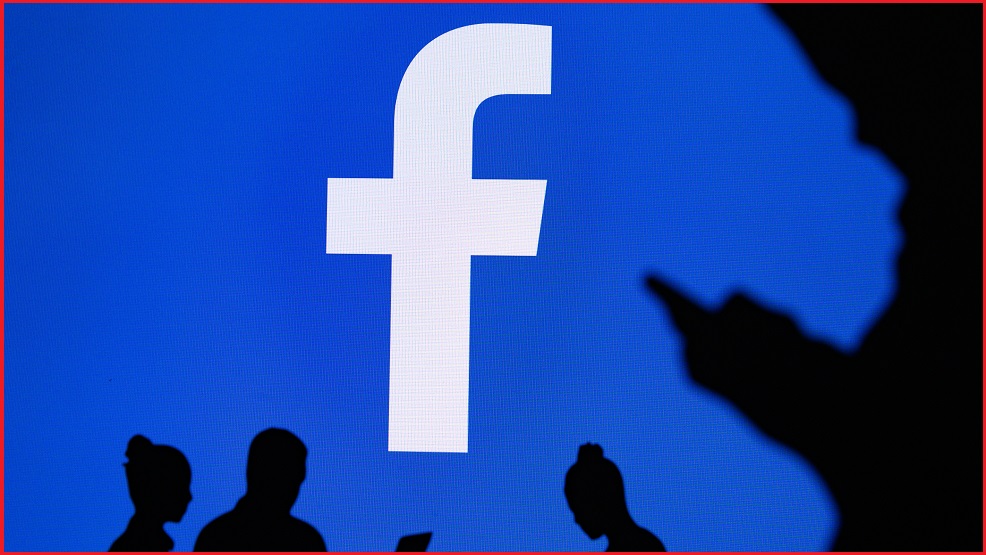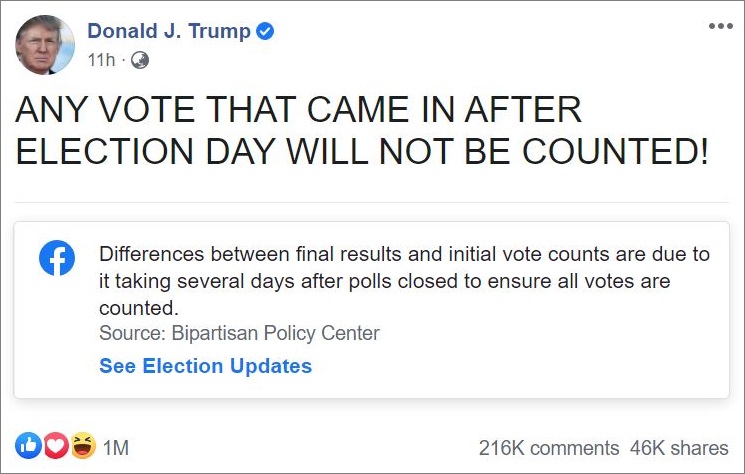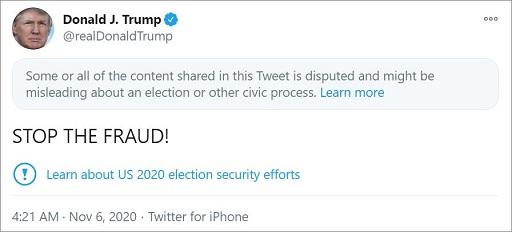Facebook removed a group that was promoting US President Donald Trump’s baseless claim that the election was being ‘stolen’ through voter fraud as mail-in votes continue to be counted in a close race.
The ‘Stop the Steal’ Facebook group had about 350,000 members and was organising events to protest the election result before Facebook shut it down.
“In line with the exceptional measures that we are taking during this period of heightened tension, we have removed the Group ‘Stop the Steal,’ which was creating real-world events,” Facebook said in a statement.
“The group was organised around the delegitimisation of the election process, and we saw worrying calls for violence from some members of the group.”
Prior to its removal, members posted and shared misinformation including unsubstantiated evidence of voter fraud.
Some posts called for violence with one member saying it was “time to clean the guns” and “hit the streets”.
The group was created by Women for America First, an organisation chaired by Amy Kremer, the co-founder of the Women for Trump political action committee.
Kremer naturally complained about Facebook’s move, calling it “outrageous” on Twitter.
“The group wasn’t even 24 hours old and had over 350K members,” Kremer said.
“The left is trying to steal an election and social media is complicit.”
She later confirmed that Mailchimp also suspended the ‘Stop the Steal’ account, further limiting the group’s ability to communicate with supporters.
Social media companies have tried to take a proactive approach to misinformation during the US election with Twitter and Facebook both slapping warnings on official posts by Trump’s official accounts.
On Facebook, a post in which Trump claimed “any vote that came in after election day will not be counted” has a fact check from the social media giant explaining that it may take days for all the votes to be counted.
On Twitter, a Trump tweet that simply said “stop the fraud” was covered with a note from Twitter saying the tweet “might be misleading about an election or other civic process”.
The 2020 US presidential election was always going to be a major test for social media platforms following the role Facebook played in the 2016 race and subsequent democratic votes around the world.
Australia’s parliament has begun an inquiry into the effects of social media on our democracy.
A month prior to this year’s presidential vote, Facebook said it would attach labels on posts “that discusses issues of legitimacy of the election or claims that lawful methods of voting like mail-in ballots will lead to fraud” in an attempt to provide “reliable information” about the election process.
Twitter did the same, preparing its users for labels on tweets that “that falsely claim a win for any candidate” along with removing any tweets that promote violence or election interference.
As the ban hammer has come down, some content creators and their supporters have migrated to alternative social media platforms like Twitter-clone Parler which claims to be a haven for free speech.












